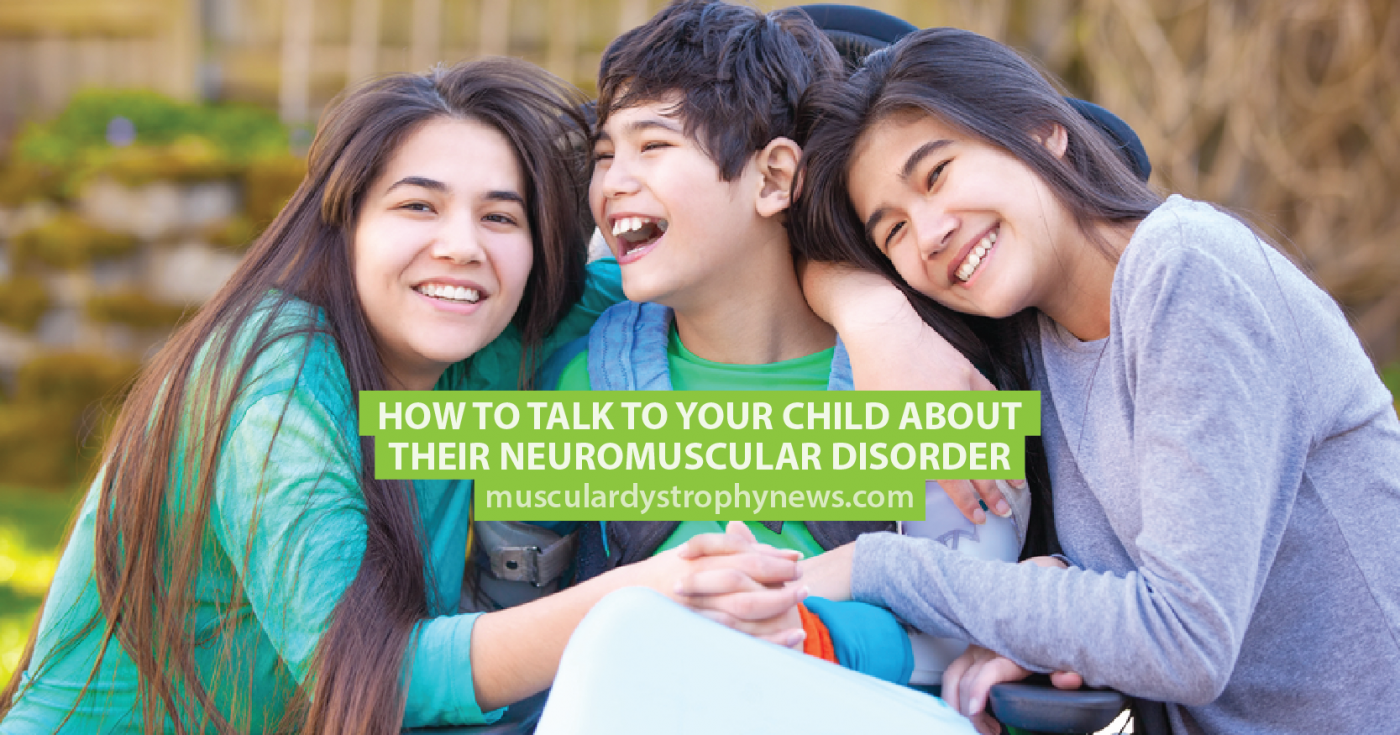How to Talk to Your Child About Their Neuromuscular Disorder
Written by |

Finding out your child has a neuromuscular disorder is an incredibly difficult time for the whole family, but you adjust quickly. While your child’s unlikely to realize they’re different from other children when they’re young, they’ll start to question why they’re different from their peers and siblings as they get older.
MORE: Family of young boy with Duchenne MD spend their spare time raising awareness of the disease.
According to Muscular Dystrophy Canada, there will come a time when you’ll need to sit down with your child and explain their condition and what it means. There is no right or wrong way to tackle this, nor is there any timeframe. It’s generally best to be as honest as you can without overloading your child with information they may not be mature enough to process.
Usually, children with neuromuscular disorders will notice they are slightly different from others at a fairly young age. It’s advised to handle any questions as they occur. Explaining how their condition will affect them as they age may be stressful for both parents and child, but it’s important that the topic is handled carefully and sensitively. Shielding children from the truth may backfire if they find out why they’re different or what their disorder means from others. Your child needs to be able to trust you and look to you for guidance.
Children need to know why their bodies don’t work in the same way as other children’s, as well as what their future may have in store for them. You can explain most disorders in an easy-to-understand way that will help them grasp what’s happening and give them the tools to explain their condition to other people.
Explaining that their muscles don’t work properly because they didn’t come with the right instructions or that the nerves in their spine are sending the wrong signals are two easy ways for children to understand the basics of why they can’t do some of the things their friends or siblings can.
It’s essential that you take the time to reassure your child that he or she has done nothing wrong and that it isn’t their fault they have a neuromuscular disorder. They also need to know that it’s OK if they sometimes feel sad or angry about their situation.
Take time to focus on the positives in your child’s life and all the things they’ll still be able to do, rather than concentrating on the things they won’t be able to do because of their disorder. Try to find some older children who have the same disorder who are living full and active lives for them to look up to.
MORE: Coping with your child’s diagnosis of a neuromuscular disorder.
Muscular Dystrophy News Today is strictly a news and information website about the disease. It does not provide medical advice, diagnosis or treatment. This content is not intended to be a substitute for professional medical advice, diagnosis, or treatment. Always seek the advice of your physician or another qualified health provider with any questions you may have regarding a medical condition. Never disregard professional medical advice or delay in seeking it because of something you have read on this website.





